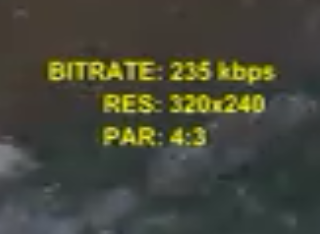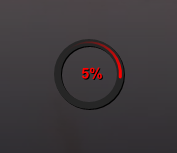Comcast is definitely throttling Netflix, and it's infuriating
First, let's talk about the worst company in America
Comcast is one of the most hated companies in America, yet inexplicably, also one of the most successful. Two nationwide surveys done by the American Customer Satisfaction Index in 2004 and 2007 showed that "Comcast had the worst customer satisfaction rating of any company or government agency in the country, including the Internal Revenue Service." Wow, just let that sink in for a second. People would rather get audited by the IRS than call up Comcast to deal with a faulty cable modem. Also, they are consistently given terrible ratings by every consumer advocate organization across the board.
On the other hand, Comcast is one of the most successful companies in the US. In 2012, Comcast boasted 18.6 million Internet customers and made $12.1 billion. Why is this? Being an Internet Service Provider (ISP) is a natural monopoly. This does not necessarily mean that there's only one company offering a service in an area, or that this service is essential to life (like a water and sewer service), it just means that it is most efficient for a single firm to provide a service, and one firm usually has a massive cost advantage over the others.
Comcast boasts all of these customers and makes all of this money because, despite how it shouldn't be like this in a "free market" system, their customers really don't have any other choice. In the vast majority of places in America, there are typically four types of Internet service available: Dial-up, Satellite, DSL, and Cable. Dial-up is extremely slow and Satellite has an insane amount of latency, so we're going to throw those out. If you don't want to be ripping your hair out in frustration at how slow your Internet is, you have the "choice" between DSL and Cable. DSL is typically delivered over legacy telephone line connections, and has historically been much slower than Cable, with more latency. So unless you are lucky enough to live in one of a few neighborhoods in America with that third path ISP such as Google Fiber, you're basically forced to opt for Cable.
Some people say that Internet service is "optional", so it shouldn't be regulated like a utility. Yet, the United Nations says that Internet access is a basic human right. You need Internet access to search for jobs, fact-check political candidates, read the news, and learn new things. We should be taking it seriously when companies like Comcast shit all over their customers. Yet, Comcast reports record earnings every quarter, boasts about how many subscribers they have, and remains the only realistic ISP choice in just about every market they're in, despite terrible service. It would be like dying of thirst and being approached by a slick salesman offering tap water for $20/bottle (Comcast) and a second vendor selling brown, murky water for $10/bottle (DSL). You're going to pay out the nose for that tap water, but you won't be happy about it.
OK, now let's get to the point
Why am I getting so heated about all of this? I pay about $50/month to Comcast every month for 50 Mbps Internet. For most things, it's actually pretty fast. Web browsing, online gaming, and torrenting (the legal stuff of course, like Linux ISOs) are all pretty fast. But around the time that a federal court struck down the FCC's Net Neutrality protections a few weeks ago, my Netflix service seemed to grind to a near halt. This also seems to coincide with Netflix's Official ISP rankings dropping Comcast's rating down into the bottom 5 ISPs nationwide.
Late last year, I was easily getting 720p and 1080p video on all my devices. Now? I can barely get video to stream at the lowest resolution, which doesn't even give VHS a run for its money. I've looked online and many, many others are also raging about the dreaded combination of Comcast and Netflix. Here is a thread on DSLreports that many people have chimed in on. If you Google it, you will see various posts on the topic.
But where's the proof?
As a Indiana University student, my school is kind enough to provide every student with VPN access into their network. IU's network is connected to a regional fiber backbone and provides 100 Mbps access in every dorm on campus. When you connect via VPN, you're limited in speed by your local Internet connection, as well as the typical issues associated with VPN (increased latency, VPN congestion, etc). I figured I would try watching Netflix over the VPN, though I was skeptical as to if it would really be faster than a direct link from my ISP connection to Netflix's servers.
Watching the Netflix test video normally via Comcast:

Netflix throttled by Comcast: It stayed at this pathetic bitrate for about 5 minutes. I gave it plenty of time to buffer.

And of course, the Netflix buffering pause becomes a large part of the show you're watching with Comcast.
Watching the Netflix test video via Comcast over the IU SSL VPN:

Tunneling all of my traffic through an encrypted VPN, my Netflix is no longer throttled and my bitrate maxes out quickly.
The IU VPN is SSL encrypted, which means that the details about all traffic sent over it is hidden from Comcast. When I access Netflix over this VPN connection, all Comcast sees is an encrypted stream of data going through their network. They can estimate how much data is moving, but can't tell that I'm using Netflix, or streaming video for that matter. Therefore, they don't throttle it. I think that this is pretty conclusive proof that Netflix is being heavily throttled by Comcast, despite Netflix's good faith effort to offer their OpenConnect CDN service to ISPs and the fact that many Comcast customers pay for a faster bandwidth specifically so that they can watch Netflix HD. If anyone has any qualms with my testing methodology, please let me know your concerns at mattvukas@gmail.com.
But did you try going through tech support about this?
Well, of course. In addition to doing my own troubleshooting, which involved power cycling all networking equipment, replacing my router, and testing among 4 different devices (PC, Mac, Roku, iPhone) at different times of the day, I went through the official channels. I contacted Netflix and they found no problem on their end and pointed me to my ISP. I contacted Comcast on two separate occasions, they found no problems with my Internet connection, then told me that I would get a followup call from a "Network Engineer". That call never came.
Conclusion
Comcast treats their customers like shit, and their Internet service clearly throttles certain kinds of traffic from certain companies. Could this have anything to do with the launch of their new Xfinity Online Streaming service, which doesn't go against your data caps? Possibly. It's actually quite likely, if you think about it. If you were an automaker who happened to own a highway, it might make sense to let your brand of car drive in the fast lane for free, while competitor's cars were forced to sit in the toll booth line for hours. All analogies aside, that's where I'm afraid we're headed: having the Internet reduced to a crappy bundle of subscription cable channels where companies like Comcast dictate the content. Since I already send Comcast a $50 check every month for access to the Internet, one of humanity's greatest technological achievements, I would like to decide what content I consume and have all traffic treated the same by Comcast's network. As a consumer, I don't really have a choice between competing companies here, so the FCC needs to step in and ensure that all Internet traffic is treated fairly by ISPs. If we're not careful, dreaded cable company monopolies may someday extend into cyberspace. Now that is a frightening thought.
EDIT (2-11-14 5:26pm): This article has received a ton of traffic from social media, as well as other sources, so I've received plenty of feedback from people. One common thread appears to be people pointing the finger at the Netflix CDN node in Chicago, which is the one that I connect to based on my geographic location. I'm planning on writing a follow-up piece in the next day or two testing this hypothesis by blocking that node in particular, forcing Netflix to stream through a different CDN node. I will update this article when that happens.
EDIT (2-11-14 7:26pm): I was interviewed today around 4pm EST for KGO 810 AM San Francisco's "After the Bell" news show. The segment was about Net Neutrality and ISP throttling. Here's the clip!
EDIT (2-11-14 11:42pm): I've given some thought to my follow-up article, and I came up with a more thorough testing plan that I want to implement sometime in the next week. Here's what I was thinking:
- Do some packet inspection to find out exactly which Netflix CDN node my stream is hitting, and grab that IP address
- Do a traceroute on that IP address to see what path it's taking, and where (if any) the high latency jumps are
- Do a traceroute again, but this time through IU's VPN. Take note of any differences in traffic routing
- Block that CDN node at the IP level, then try streaming again without the VPN. Hopefully, Netflix will reroute my traffic to a different node (Dallas or NY maybe?), and I can see if the problem persists. If Netflix works correctly after that change, it may confirm a regional problem with the Chicago node
I would like to set this up as soon as possible, but school and work are going to take up my time over the next few days. I'll update this post when I give it a shot, however. Just tweet at me or shoot me an e-mail if you have any suggestions or concerns.
|
Older:
Eclipse System.out.println shortcut for Windows, Mac, and Linux |
Newer:
Venturing further down the Comcast Netflix rabbit hole |
